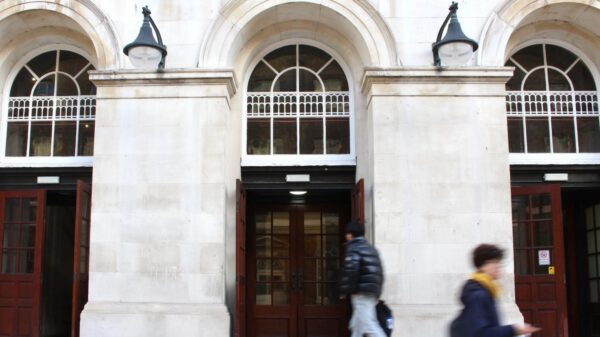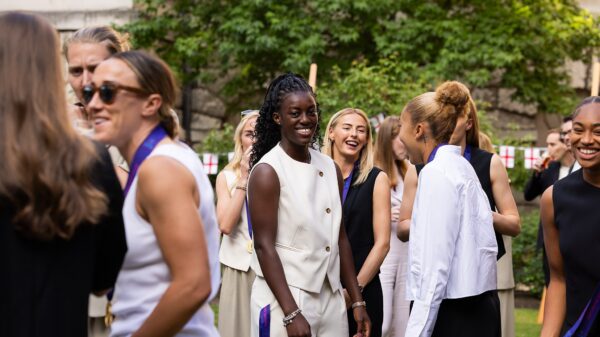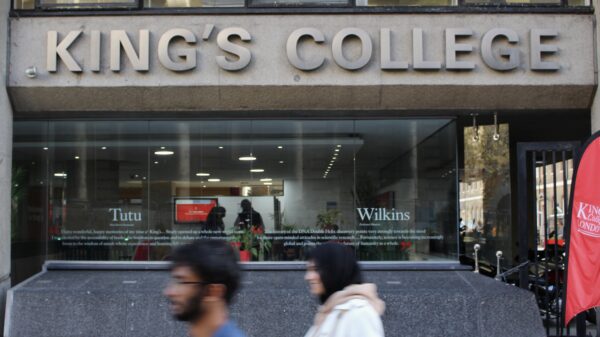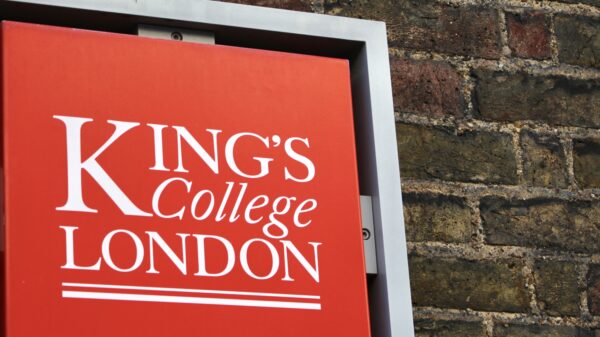This article was originally published in the September print edition.
From heated protests to cancelled speakers, campus free speech has become one of the most contested issues at UK universities. Now, a major legal shift is raising the stakes.
Under new legislation, universities are required to protect any lawful expression on campus, even if it is offensive.
The Higher Education (Freedom of Speech) Act 2023 came into effect throughout England in August. The revised law aims to strengthen academic freedom and open debate, but it also challenges how institutions like King’s College London (KCL) handle protest, identity and student wellbeing.
At an institution as culturally and politically diverse as KCL, this significant legal shift threatens to redefine campus discourse.
A Diverse Campus, a Divided Conversation?
This academic year, more controversial topics can take on deeply personal dimensions when discussed in seminar rooms or public events.
Under the new law, universities must allow divisive opinions to be expressed, even if they are at odds with the values or identities of certain groups on campus.
KCL staff must now be free to introduce readings, arguments, or theories that might be uncomfortable for some students, but the law is clear: academic freedom now takes precedence.
In the ‘Dignity at King’s Prevention of Bullying and Harassment’ policy (1.3), KCL states that it does not tolerate any form of bullying, which it defines as “offensive, intimidating, malicious or insulting behaviour involving the misuse of power that can make a person feel vulnerable”.
However, Arif Ahmed from the Office for Students (OfS), the body which regulates universities, described being shocked and offended as now “part of the process of education.”
The new law creates a direct tension; how can universities uphold a duty to protect students from “offensive” behaviour, while also protecting speech that is, by definition, offensive to some?
A KCL spokesperson said: “Whilst this legislation seeks to reinforce the importance of free expression in universities, throughout our nearly 200-year history King’s has always been committed to supporting freedom of speech within the law.
“One of the key roles of a university is to be a place where different ideas and views can be shared, debated, and examined with civility – recognising that not everyone will agree all the time and it is these moments of disagreeing well which often lead us to challenge our own ideas, foster new ways of thinking and gain valuable skills.”
KCL also confirmed it would be revising its Code of Practice and providing new training modules, as well as wellbeing support if required.
Protests, Events and Tensions
Under the new law, universities must take ‘reasonably practicable’ steps to secure freedom of speech, both for protesting students and for visiting speakers invited by societies. Controversial figures must be permitted to speak at events unless they breach legal boundaries.
The ‘practicable steps’ extend to safeguarding both protest and counter-protest, even when demonstrations are seen as inflammatory; they cannot be cancelled by KCL on that basis alone. However, universities do hold the right to regulate the time, place and manner of protest, in instances where safety is at risk or to ensure teaching, learning and research can continue.
On Strand Campus last year, King’s saw frequent protests, most notably the Quad Encampment in May. Pro-Palestine student groups camped between the King’s Building and the Dickson Poon School of Law in Somerset House for 16 days, with the demonstration concluding following university intervention.
A KCLSU spokesperson said: “KCLSU exists to support our members in actively shaping their student experience and education. As an inclusive organisation, we uphold the right to free expression, while also expecting our members to engage in dialogue that respects differing views.”
While the importance of freedom of expression from the new legislation will be recognised, King’s students must not use the law as an excuse for rude, ill-mannered behaviour.
Impact on Student Experience
The question is not whether controversy will arise; it is how the university will support students when it does. However, there remains a fine line that separates free speech and hate speech – how far is too far?
Roar conducted a survey on Instagram, asking students “Do you feel you have Freedom of Speech at King’s and why?” Nearly half (48%) responded ‘No’.
One student described being followed around by security for merely observing the Quad Encampment protests, with another stating, “Not one student or tutor spoke about Palestine in our HISTORY classes, so it felt like silence”.
Both responses demonstrate a clear feeling among students, that prior to the law’s enactment, there has been a restriction in regard to freedom of speech, with the latter suggesting there exists an intentional avoidance of potentially controversial issues in seminar discussions.
On the other hand, respondents questioned whether there are inherent restrictions placed on freedom of speech by the university, or whether these are merely self-imposed. One student answered: “I feel like people who say they don’t [have freedom of speech] just have quite unpopular opinions and are scared of getting shit for them. Doesn’t mean they can’t voice them.”
This legislation significantly raises the stakes for institutions; the OfS has enforcement powers, and universities can be penalised for failing to uphold free speech protections. In March, University of Sussex was fined £585,000 by the OfS after an investigation found the “university’s governing documents failed to uphold freedom of speech and academic freedom as well as failings in the university’s management and governance processes.”
KCL has a duty of care toward students, many of whom may feel deeply vulnerable when exposed to hostile or dismissive viewpoints. Striking that balance, between legal obligation and moral responsibility, will be a defining challenge for KCL over the next several years.














